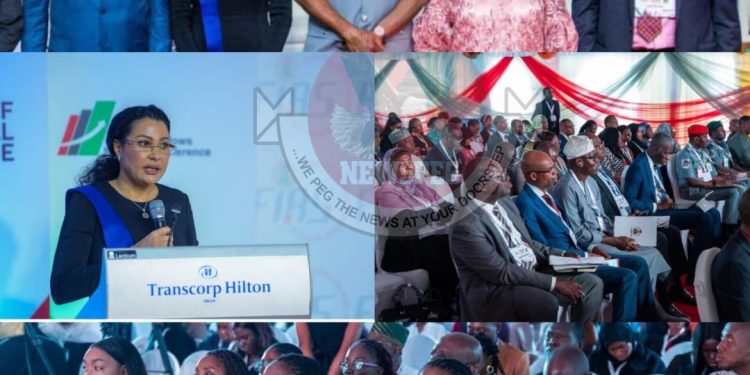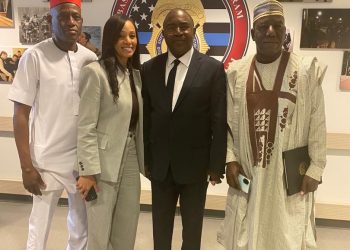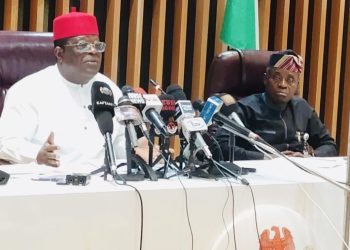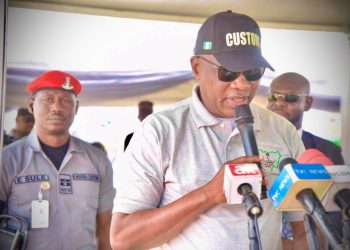By Nkechi Eze
As Nigeria steps up efforts to reform its revenue system and strengthen anti-corruption frameworks ahead of a key Financial Action Task Force (FATF) evaluation, stakeholders from across the public and private sectors converged in Abuja on Tuesday, July 22, 2025, for the National Conference on Combating Illicit Financial Flows. The event, convened against the backdrop of mounting concerns over Nigeria’s vulnerability to illegal financial outflows, marks a strategic push to tighten institutional coordination, improve compliance with international standards, and boost domestic revenue mobilisation.
At the centre of these efforts is the Nigeria Customs Service (NCS), whose Comptroller-General, Bashir Adewale Adeniyi, delivered a powerful message on the frontline role of the Service in curbing illicit financial flows (IFFs). He emphasised that Customs’ operational structure particularly at the nation’s borders provides a unique platform for monitoring and intercepting the illegal movement of cash and negotiable instruments across jurisdictions.
“In the last six months, Customs has tightened loose ends at all our borders to ensure that declaration protocols are diligently implemented,” Adeniyi disclosed, noting that the NCS has intensified scrutiny on fund movements that fall above international threshold limits.
He warned that the scale and complexity of illicit financial flows require more than border enforcement, urging a coordinated approach that draws in all critical stakeholders, especially as Nigeria gears up for its FATF mutual evaluation.
“Addressing IFFs goes beyond one institution. It requires a collaborative framework where each agency contributes its expertise to ensure a secure and financially transparent environment,” he said. He identified the Customs Service, the Economic and Financial Crimes Commission (EFCC), tax authorities, and other agencies as key players whose roles must align to effectively tackle the challenge.
Also speaking at the event, Minister of State for Finance, Dr. Doris Anite, drew attention to Nigeria’s historic overreliance on oil revenues, which she described as unstable and inadequate for long-term fiscal sustainability. She said the current administration’s reform agenda is focused on creating a resilient revenue base through tax reforms and greater accountability in financial governance.
“For decades, Nigeria relied heavily on volatile oil revenue. Our current reforms recognise the urgent need to diversify our revenue base, shifting focus to non-oil sources, particularly tax,” Anite said.
She urged participants to support the creation of a more inclusive, responsive, and equitable fiscal architecture that can not only reduce the country’s debt burden but also ensure that all sectors contribute meaningfully to economic growth.
“The participating members should create a more inclusive and accountable fiscal framework capable of funding national development, reducing debt dependency, and ensuring all sectors contribute fairly to growth,” she added.
The conference brought together representatives from Customs, EFCC, the Federal Inland Revenue Service (FIRS), financial institutions, civil society organisations, and development partners. It forms part of Nigeria’s broader effort to plug revenue leakages, prevent money laundering, and restore confidence in its financial system, while aligning fully with global standards set by FATF and other regulatory bodies.
















